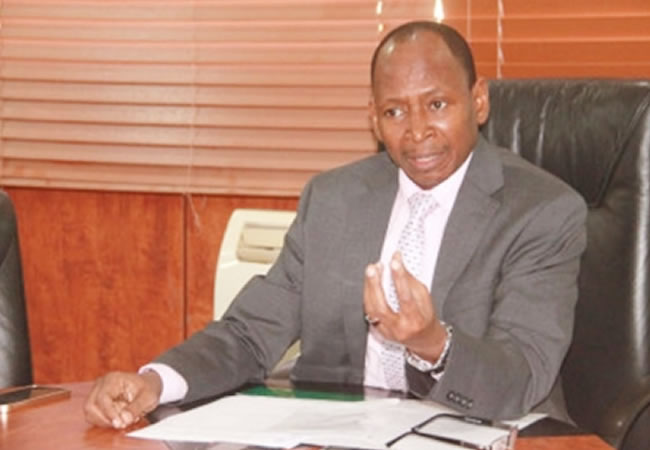Posted on Jan 15, 2020
The Federal Government has commenced the immediate implementation of some aspects of the Finance Act with the implementation of 7.5 per cent Value Added Tax on government transactions.
The Accountant-General of the Federation, Alh Ahmed Idris, confirmed the development during a chat with journalists on Wednesday in Abuja.
The move followed the signing of the Finance Bill into law, on Monday, by the President, Major General Muhammadu Buhari (retd), after it was passed by the National Assembly on November 21, 2019.
The objectives of the Act are to strategically promote fiscal equity by mitigating instances of regressive taxation; reform domestic tax laws to align with global best practices, and introduce tax incentives for investments in infrastructure and capital markets.
It is also aimed at supporting small businesses in line with the ongoing ease of doing business reforms; and raise revenues for the government by various fiscal measures, including an increase in the rate of Value Added Tax from five per cent to 7.5 per cent.
The bill also seeks to provide efficiency in the administration of individual income taxes in Nigeria.
Idris said that already, the bill has become a law and it was imperative for his office to obey the law.
Specifically, the Accountant-General said he had to stop the payment of a certain amount on Tuesday because the transaction was processed based on five per cent VAT.
According to him, payment for the transaction which occurred last year will not be made until the 7.5 per cent VAT is factored into the cost of transaction.
When asked if it was right to impose VAT of 7.5 per cent on a business transaction that had already been done before the signing of the finance bill, he said VAT is deducted at the point of payment rather than the point of purchase
He said, “You cannot implement a budget unless the National Assembly passes it and Mr President signs it. So, the decision to increase VAT was debated and members of the public were sensitised and nobody can start deducting that VAT unless the bill is signed.
“Just yesterday (Tuesday), I saw a payment which was done last year in December and when I checked the payment, the VAT on it was five per cent and I said no it must be 7.5 percent because the five per cent VAT has been overtaken by events because that is the law as at today.
“So I stopped it and asked them to go and recharge at 7.5 per cent. You cannot implement something unless you have the instrument whether administrative or legal for it to be implemented.”
